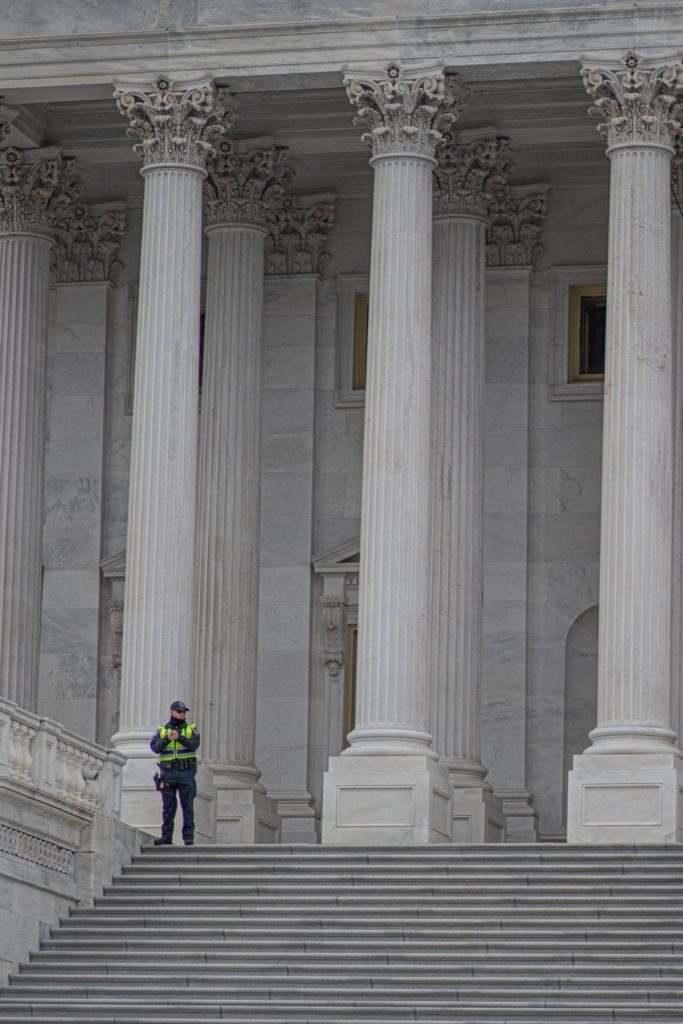
Published July 13, 2022
The Supreme Court’s recent Dobbs decision is a gift that keeps on giving. And one of its benefits is clarity, especially in light of John 8:32. Truth may be unwelcome. It can make us uncomfortable, or worse. But it does make us free; free to see the world as it really is, and free to do something about it. So herewith, a few items clarified by Dobbs since June 24.
First: The unum in E pluribus unum means very different things to different people. American politics has always been messy. But it’s generally been conducted within broadly agreed-upon bounds of decency. Most people have assumed that we’re all in this thing called a “nation” together. That’s no longer true. The ferocity of the verbal abuse, defiance of the law, church desecrations, street rage, and intimidation unleashed by the Dobbs decision highlights a simple fact. Scores of millions of Americans no longer inhabit the same moral planet. Their differences are too deep. Calls for “coming together” as “one people” are incoherent when unity is defined by an exclusionary left-ideology in a single party.
Second: The threat of impending “Fascism! Right around the corner!” – a treasured anxiety of the Trump Dark Ages – might oddly come true. Just not from the direction you thought. Mr. Trump, with his vulgar style and legion of faults, nonetheless had the effect of a sun lamp or disagreeable medicine on a nasty boil: He drew all the hysteria, fanaticism, and arrogance of hardcore progressive thought to the skin’s surface, where the boil and its poison popped.
Eric Voegelin, the distinguished political philosopher who fled Nazi Germany, noted that progressivism, Marxism, fascism, and national socialism share the same family DNA. They’re all variants of the same intolerant, gnostic religious impulse. They each, in their own way, repudiate rational public discourse and insist on what Voegelin called a “prohibition of questions.” It doesn’t matter that the 1973 Roe v. Wade decision was badly reasoned and unrelated to anything actually in the Constitution. It doesn’t matter that it invented a new “right” out of thin air. Roe had the sanctity of divine revelation. Challenging it proves one’s wickedness without the need for tedious debate.
Third: Humpty Dumpty owns the trademark to the word “devout.” Anyone familiar with fairytales will remember Humpty Dumpty. Who could forget (at least one of us hasn’t) his searing political acumen? “When I say a word, it means exactly what I say it means, neither more nor less.” Devout™ Catholics, it turns out, can say and do pretty much whatever they want while remaining safely Devout™, as long as they’re true to their feelings and really, really sincere about it.
Let’s recall all those religious voices eager to be rid of the ogrish Mr. Trump and hopeful of a better day with Joe Biden as our second Catholic president (note exhibit A, exhibit B, exhibit C, among many others). Happily, Mr. Biden’s actions don’t disappoint. Despite his economic bumbling, border chaos, memory problems, and press conference cue cards, his behavior is obviously Devout™ in the trademark sense. News media have been alert to capture him wearing his Lenten ashes, carrying his rosary beads, and in moments of private prayer.
His Devout™ Catholic faith undergirds his vigorous support for permissive abortion, his executive efforts to preserve access to pregnancy “termination,” and of course his administration’s lethargy, despite federal law, in protecting the homes of the Supreme Court justices who struck down Roe. Speaker Nancy Pelosi, cruelly penalized by her hometown bishop for her own Devout™ Catholic deeds, can explain these mysterious ways of the Spirit in greater detail.
So much for a little clarity. What do we do with it?
Anger is the logical response. And it’s warranted. But anger is dangerous. The Roman philosopher Seneca described anger as “the most hideous and frenzied of all the emotions,” obstinate by nature and eager “for reparations in blood.” It’s addictive because it can feel (and be) so right.
Jesus himself showed justifiable anger on multiple Gospel occasions, especially when dealing with frauds. Thus anger can be exactly the proper response to evil behavior – including in our public leaders. The hard part comes in hating the sins, but not the sinner; in stopping one’s anger from morphing into a habit. But we’re obligated to do precisely that.
In their 1998 pastoral statement Living the Gospel of Life, written at a time when Roe seemed unlikely ever to be overturned, the U.S. bishops stressed that
The United States has thrived because, at its best, it embodies a commitment to human freedom, human rights and human dignity. But success often bears the seeds of failure. . . .We are now witnessing the gradual restructuring of American culture according to ideals of utility, productivity and cost-effectiveness. It is a culture where moral questions are submerged by a river of goods and services and where the misuse of marketing and public relations subverts public life.
The losers in this ethical sea change will be those who are elderly, poor, disabled and politically marginalized. None of these pass the utility test; and yet, they at least have a presence. They at least have the possibility of organizing to be heard. Those who are unborn, infirm and terminally ill have no such advantage. They have no “utility,” and worse, they have no voice. As we tinker with the beginning, the end and even the intimate cell structure of life, we tinker with our own identity as a free nation dedicated to the dignity of the human person.
Catholics and other good people committed to speaking for the unborn child, and for America’s best ideals, spent five decades working for this post-Roe moment. They did it despite systematic media bias, intense abortion “rights” propaganda – and doubts, criticism, and pious lecturing from a choir of embarrassed co-religionists. Nothing has changed. . . .except Roe, at least, is now well and truly dead. The work continues, because it must.
Francis X. Maier is a senior fellow in the Catholic Studies Program at the Ethics and Public Policy Center. Mr. Maier’s work focuses on the intersection of Christian faith, culture, and public life, with special attention to lay formation and action.
Image: DEELIN via Pexels
Francis X. Maier is a Senior Fellow in the Catholic Studies Program at the Ethics and Public Policy Center. Mr. Maier’s work focuses on the intersection of Christian faith, culture, and public life, with special attention to lay formation and action.











